I and Love and New York: The Avett Brothers Return with ‘True Sadness’
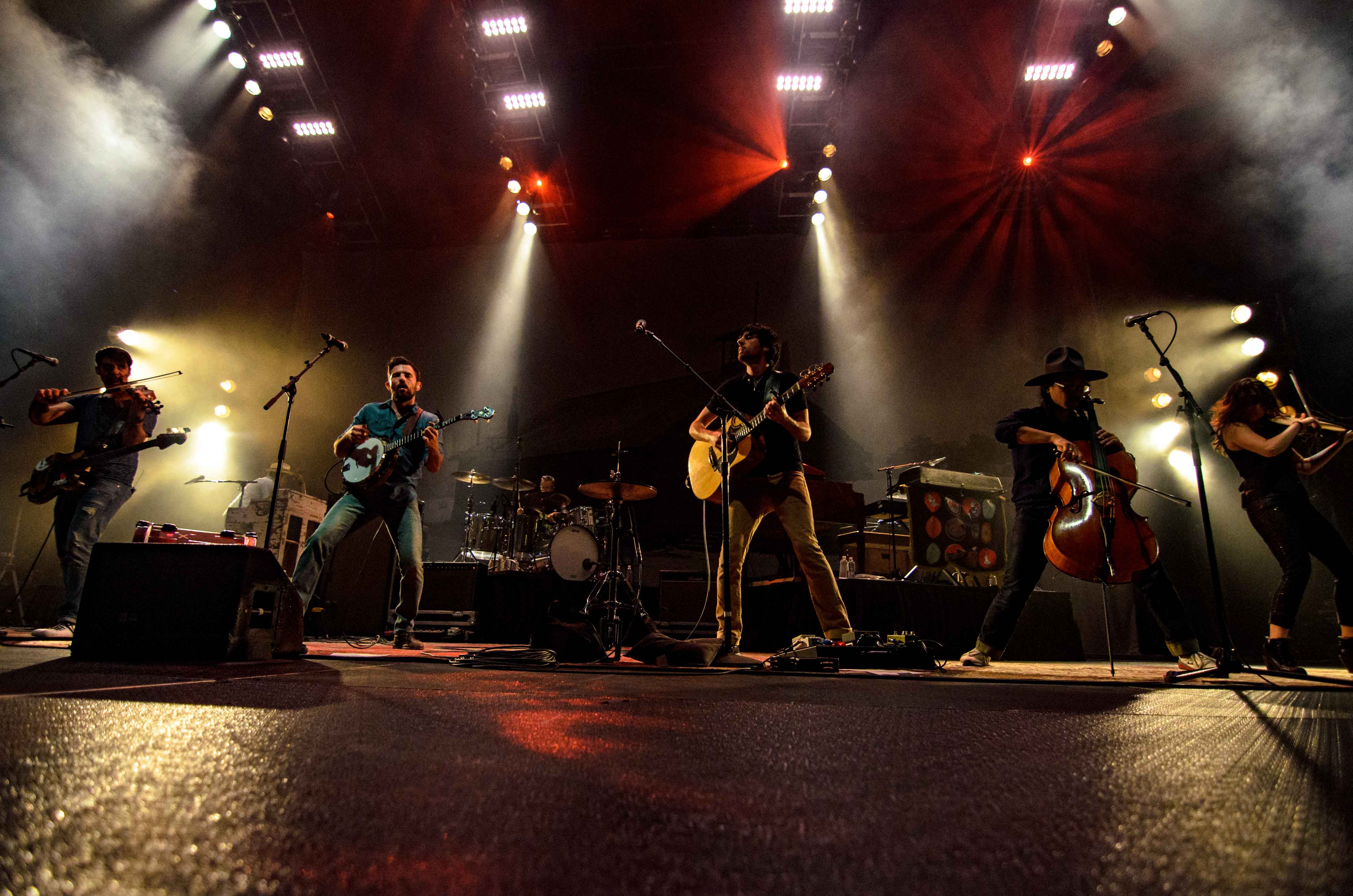 It’s a sunny Friday afternoon in early April, and the members of The Avett Brothers are a few hours away from what may be the biggest headlining gig of their lives. Just over 15 years since brothers Scott and Seth Avett formed their eponymous band—and seven years after they helped bring string-based roots music back to the masses with their Rick Rubin-produced smash I and Love and You—the seven-person indie-folk ensemble is finally being anointed as a marquee Madison Square Garden headliner. A decade ago, it would have been unheard of for an Americana act from Mount Pleasant, N.C., a tiny community of under 1,700 residents, to book a show at the world’s literal and self-branded “most famous arena” in the age of guitar-based indie rock. And, even though acoustic-influenced music has long since become an organic antidote for the more synthesized sounds permeating pop culture, The Avett Brothers are still the rare act to inch their way through New York’s venue ranks all the way to MSG— grassroots style.
It’s a sunny Friday afternoon in early April, and the members of The Avett Brothers are a few hours away from what may be the biggest headlining gig of their lives. Just over 15 years since brothers Scott and Seth Avett formed their eponymous band—and seven years after they helped bring string-based roots music back to the masses with their Rick Rubin-produced smash I and Love and You—the seven-person indie-folk ensemble is finally being anointed as a marquee Madison Square Garden headliner. A decade ago, it would have been unheard of for an Americana act from Mount Pleasant, N.C., a tiny community of under 1,700 residents, to book a show at the world’s literal and self-branded “most famous arena” in the age of guitar-based indie rock. And, even though acoustic-influenced music has long since become an organic antidote for the more synthesized sounds permeating pop culture, The Avett Brothers are still the rare act to inch their way through New York’s venue ranks all the way to MSG— grassroots style.
As assorted record label ambassadors arrive at the arena and rabid fans line up in front of the tour buses and 18-wheeler trucks jutting into a bustling 33rd Street, a sense of grandeur fills the hallowed halls. The group’s four principals—the surprisingly clean-cut Avetts, bassist Bob Crawford and cellist Joe Kwon—are congregated in a greenroom reserved for interviews as stagehands make their final adjustments a few feet away. The Avetts are already dressed in their show clothes, which look remarkably like the rugged Southern gentleman threads the group have sported since they originally figured out how to unplug their instruments without losing their manic, hardcore energy—only these duds have higher price tags.
Tonight is the first time that Kwon, Scott and Seth have even set foot in MSG, let alone played here; Crawford, who grew up in New Jersey, warped his brain during a stretch of Dead shows at the Garden in 1991. “The first night, my seats were behind the stage, and I wandered around the venue trying to find a place with better sound,” Crawford says with a laugh, remembering the three gigs he checked out during that memorable nine-night run. “It’s just great to be here sober—and with short hair.”  Given their tortoise-and-the-hare-like ascent, it makes sense that the Avetts are in a reflective “New York State of mind” as they prepare for their first show at this storied landmark—the film crew who documented the recording of their ninth album, the remix-influenced True Sadness, are hovering around, tracking the proceedings. Scott, Seth and Crawford are quick to point out early New York engagements at far smaller spaces, like the now-defunct Morningside Heights haunt Radio Perfecto and the anti-folk incubator Sidewalk Café in the East Village. Scott mentions that Radio Perfecto’s listening space was only twice the size of their current greenroom. Crawford adds that the “fascinating” thing about their NYC debut is that singer-songwriters Regina Spektor and Langhorne Slim were among the 25 people in attendance—fellow expat Garden State hero Nicole Atkins, an indie-darling who met Crawford when she moved across the Mason-Dixon Line, even helped book some of their first tri-state area dates. Kwon, who joined the band a few years later, sits silently throughout the conversation, making his presence known through his warm smile and nods.
Given their tortoise-and-the-hare-like ascent, it makes sense that the Avetts are in a reflective “New York State of mind” as they prepare for their first show at this storied landmark—the film crew who documented the recording of their ninth album, the remix-influenced True Sadness, are hovering around, tracking the proceedings. Scott, Seth and Crawford are quick to point out early New York engagements at far smaller spaces, like the now-defunct Morningside Heights haunt Radio Perfecto and the anti-folk incubator Sidewalk Café in the East Village. Scott mentions that Radio Perfecto’s listening space was only twice the size of their current greenroom. Crawford adds that the “fascinating” thing about their NYC debut is that singer-songwriters Regina Spektor and Langhorne Slim were among the 25 people in attendance—fellow expat Garden State hero Nicole Atkins, an indie-darling who met Crawford when she moved across the Mason-Dixon Line, even helped book some of their first tri-state area dates. Kwon, who joined the band a few years later, sits silently throughout the conversation, making his presence known through his warm smile and nods.
“I’ve got a tendency to downplay things and say, ‘It’s just another day at the office,’ but there’s a realization of how big a deal it is to play there,” Scott says a few weeks later, thinking back on the band’s Garden gig. “It’s a once-in-alifetime, huge deal.”
Though the Avetts didn’t quite sell out the room, they managed to fill MSG on their own—instead of organizing a festival package as is the current norm—with only their friend Brandi Carlile providing support duties. They turned the performance into something of a New York City tribute, too, opening their set with “Talk on Indolence”—an 11-year-old song from indie release Four Thieves Gone: The Robbinsville Sessions that references a debaucherous night in the Big Apple—and bookending that wink with their Brooklyn loveletter, the sing-along “I and Love and You.” 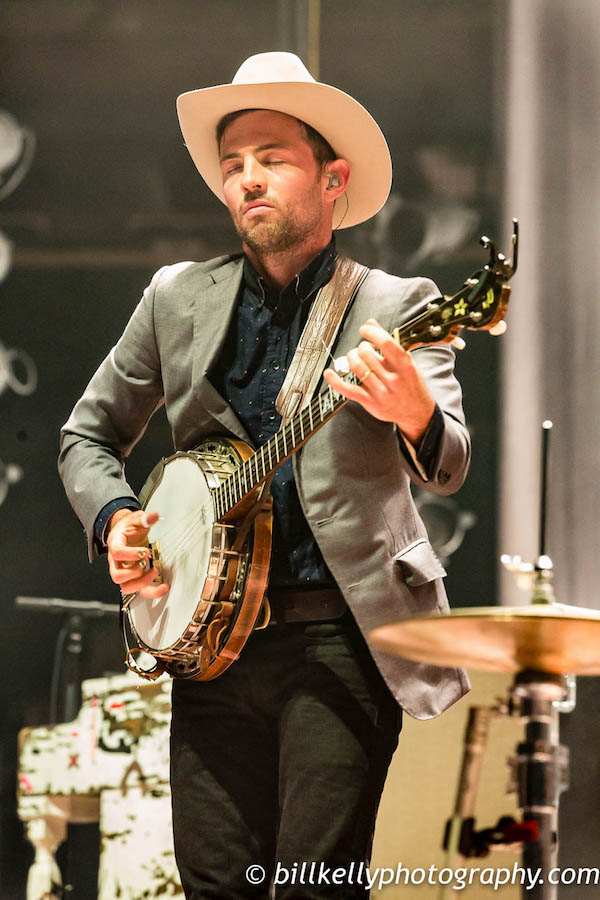
“We have a history of mission statements—you’ll find one in I and Love and You and there’s one for Emotionalism,” Scott continues, shifting his thoughts back to the former album’s lyrics, which have no doubt inspired more than a few yearbook quotes and wedding vows since its release in 2009. “‘I and Love and You’ was our first collaboration with Rick, and it was a stream of thoughts that we organized as a group. It was about what New York and Brooklyn mean for musicians from any small American town— reaching for that as the pinnacle and how intimidating that can be. But the city turned out to be really friendly as well and, ultimately, we were just asking for acceptance into that big world. We have a great conversation going with our audience.”
That open dialogue is also what inspired Seth Avett to officially announce True Sadness’ release with a candid letter to fans discussing the band’s sonic evolution, the “different lives” that he and his brother now lead, and the increasingly blurry space between his civilian world and professional artistry. The Avett Brothers have long since evolved past their mix of punk, bluegrass and tent-revival theatrics into a more manicured roots-pop band with a gentle soul, yet the letter also described a brightly colored quilt of influences that include “threads of Queen, Sister Rosetta Tharpe, Jimmie Rodgers, Tom Petty, Nine Inch Nails, Gillian Welch, Aretha Franklin, Walt Disney, Pink Floyd, Kings of Convenience, calypso of the 1950s and country of the 1930s” as well as rock-and-roll.
Perhaps most important, the letter served as a heads-up to fans that True Sadness was the result of a wildly different recording approach.
“We have to keep in mind that it’s really not about us,” Seth reflects of the band’s earliest songs while walking through their MSG setlist, which spanned six of their albums and also included a few nods to their recently deceased outlaw forefather Merle Haggard. “I can’t always be the 22 year old that had this or that experience, but there probably is a 22 year old that’s out there experiencing that sentiment right now. Those songs are great ways to connect with somebody who is having a similar moment.”
“We’ve found ourselves in the very fortunate position of being hyper-aware of the experiences that our fans are having and the connections that are being made through our music,” Scott adds. “It felt very natural to give a short and sweet heads-up: There’s a record coming, and this is where we’re at.”
True Sadness, which was released in late June, arrives almost three years after The Avett Brothers’ previous studio album. While the ensemble has issued all sorts of tour souvenirs during that time, it marks one of their longer lapses between releases. They dropped their last two efforts, sibling records The Carpenter (2012) and Magpie and the Dandelion (2013), in rapid succession and stayed on the road indefinitely. “Part of our learning process is realizing that it’s less about quantity,” Scott says. “Before, there was a sense of pride in releasing everything that we wrote, and now we feel much more content with ourselves. We don’t have to prove anything. All we want to do is make the best album we can make, and that will take whatever time it takes. We toured for two years without a release, and, in many ways, each year has been bigger than the last.”
The kernels for certain ideas on True Sadness date back over a decade; others, like “Divorce Separation Blues,” were written more recently while Seth’s marriage crumbled. Songs like “Victims of Life, “No Hard Feelings” and the album’s title track all document a set of musicians who have experienced true personal sadness at a time when their professional careers have reached unprecedented heights. (Crawford, in particular, has dealt with a number of hardships in recent years, including his young daughter’s battle with a brain tumor.)
“If you look at the first songs Scott and I wrote, they’re more or less one-dimensional,” Seth admits. “It was really about me—my heart being broken— and these tiny, little themes. The older you get, that theme of ‘I’m lonely’ feels small. The experiences we’ve had have opened our minds and have expanded the conversation within our band and among our families. It’s just a natural outpouring of the information that we’ve taken in.”
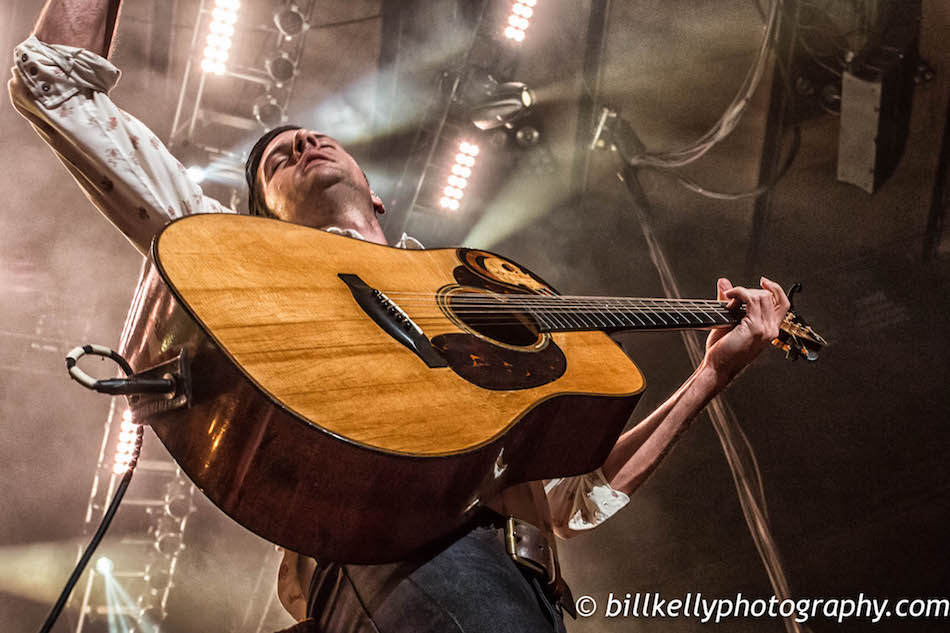 Crawford, Scott and Seth started hunkering down to demo song ideas for True Sadness in Asheville, N.C., as early as the winter of 2014 and spent a year, in Scott’s words, “siphoning through those songs.” Then, the band shipped out to Malibu, Calif., to record with Rubin, who has been the band’s in-studio confidant since I and Love and You. From the start, they also limited the number of ideas they brought to the table. “Last time we made an album, we recorded too many songs, which caused us to release two records and, by the time we released the second record, we weren’t the same people individually or artistically,” Scott says. “As our friendship with Rick grows, the better music rises to the top quicker. The new sessions were, in some ways, a boot camp—not in the respect of it being really forced, but it felt like there was a major transition that happened. There was a big-time, before-and-after moment. We’re just trying to be sincere about where we’re coming from.”
Crawford, Scott and Seth started hunkering down to demo song ideas for True Sadness in Asheville, N.C., as early as the winter of 2014 and spent a year, in Scott’s words, “siphoning through those songs.” Then, the band shipped out to Malibu, Calif., to record with Rubin, who has been the band’s in-studio confidant since I and Love and You. From the start, they also limited the number of ideas they brought to the table. “Last time we made an album, we recorded too many songs, which caused us to release two records and, by the time we released the second record, we weren’t the same people individually or artistically,” Scott says. “As our friendship with Rick grows, the better music rises to the top quicker. The new sessions were, in some ways, a boot camp—not in the respect of it being really forced, but it felt like there was a major transition that happened. There was a big-time, before-and-after moment. We’re just trying to be sincere about where we’re coming from.”
The sessions also marked the first time that the Avetts were truly able to take advantage of their current seven-member touring band, which also includes drummer Mike Marsh, pianist Paul Defiglia and violinist Tania Elizabeth. Revisiting an approach they last tried out in 2007, the full live band recorded a set of songs together during a single session before things got really trippy. After laying down a batch of ideas, at Rubin’s suggestion the group handed their nuggets over to producer Jason Lader, best known for his work with acts like Maroon 5, Julian Casablancas and Jenny Lewis, to remix the cuts dance-floor-style. Then, the group, punctuated by Elizabeth’s fiddle, used those bangers as inspirations while recording the final product.
“He took what we had done as a band and reimagined that, and we recaptured those ideas from him,” Scott says. “We ended up reacting to the remixes on some of the songs—recording them with people playing those parts on live instruments.”
Oddly enough, the Avetts’ original goal for True Sadness was to make a real-time, live-sounding record that captured the band’s concert energy and, though the sessions quickly veered left to electronica production, the musicians feel that their communal vibe remains on the effort. (Early on, they also toyed with the idea of scaling things back to the original trio of Scott, Seth and Crawford simply playing banjo, guitar and standup bass— and the version of “Fisher Road to Hollywood” that made it on True Sadness is a relic from that plan of action.) 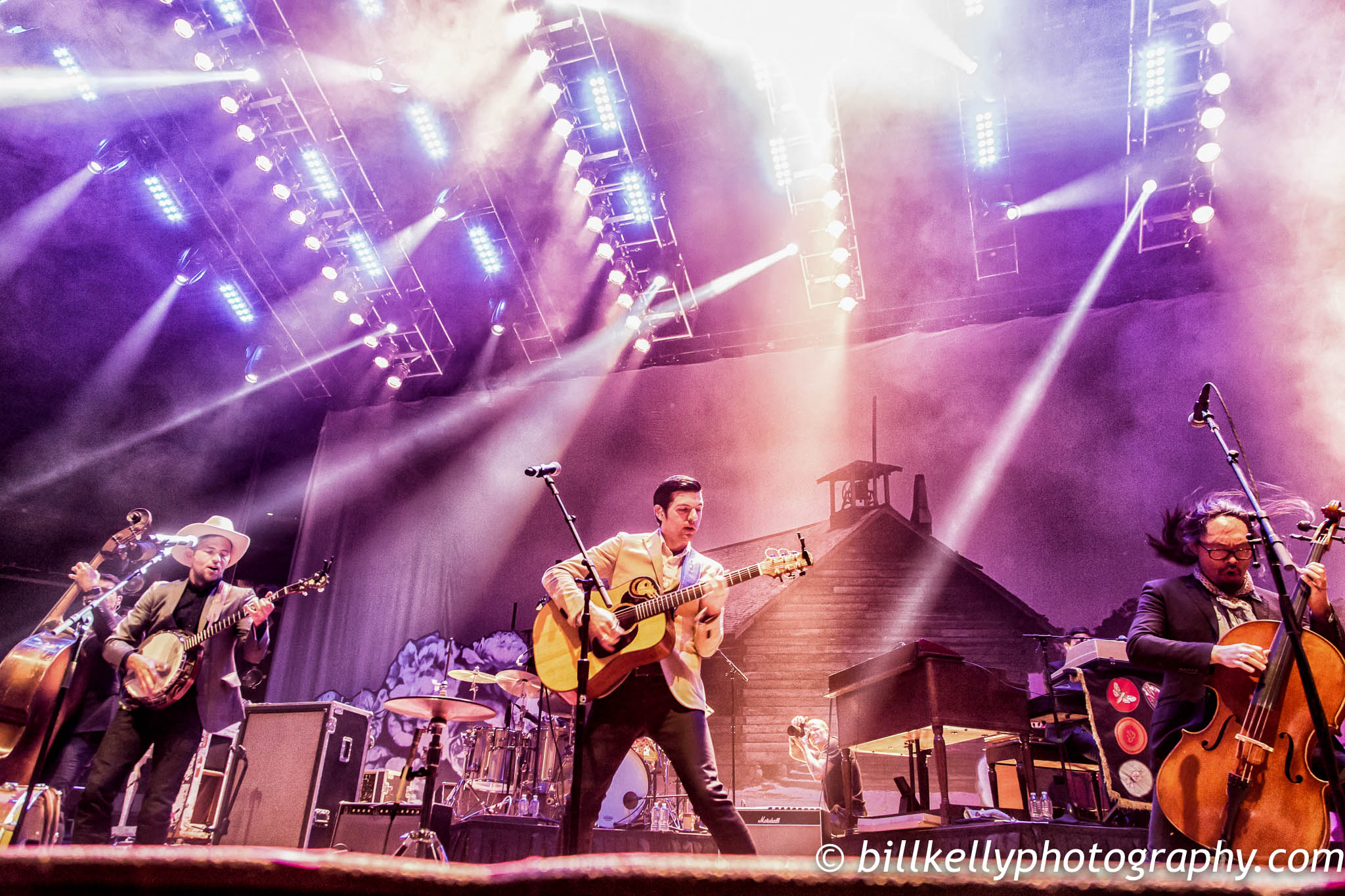 “We only recently have realized that we can appropriate a Beyoncé song or a Harry Belafonte song and haphazardly make it something that we can communicate,” Seth offers. “We found the honest voice inside those covers. But we’ve realized that we can take that a step further with our original material and do the same thing with a song like [True Sadness standout] ‘Ain’t No Man.’ It’s helped us to see what other possibilities are out there.”
“We only recently have realized that we can appropriate a Beyoncé song or a Harry Belafonte song and haphazardly make it something that we can communicate,” Seth offers. “We found the honest voice inside those covers. But we’ve realized that we can take that a step further with our original material and do the same thing with a song like [True Sadness standout] ‘Ain’t No Man.’ It’s helped us to see what other possibilities are out there.”
In certain ways, The Avett Brothers were men without a country when they formed in 2000. Seth, who is now 35, and Scott, 40, both cut their teeth in dingy Southeast clubs in high school and college, eventually merging their talents into Scott’s alt-rock band, Nemo. They originally conceived The Avett Brothers as a stripped-down parallel project that brought the front-porch-picking energy of their North Carolina surroundings to their DIY scene. Eventually charter member John Twomey left and bassist Crawford, whose résumé includes a stint in a Dead cover band, joined the group before their 2002 full-length debut, Country Was (which was released on manager Dolph Ramseur’s Ramseur Records).
Long before Mumford & Sons reclaimed arenas for acoustic guitars, and peers Old Crow Medicine Show broke through with “Wagon Wheel,” The Avett Brothers slowly made their mark thrashing banjos and other string instruments with punk-rock fervor. From the start, they made inroads within the jamband circuit and, while they never really improvised, their instrumentation, road-warrior mentality and fan-centric approach made them favorites on the modern festival scene.
Describing their show in an interview with Relix’s sister site Jambands.com in 2006, Seth said, “In order to stay exciting for us, we let each night take on its own character and have its own life. We have never made a setlist in the four years we have been playing together. Before we walk onstage, we decide the first song and let it go from there. One of us will start a song and everyone else joins in.” (Fun fact: The Avett Brothers are the first Jambands.com New Groove of the Month alum to headline MSG.) “People talk about the culture of the Dead, and I think that we have something similar going,” Crawford says. “There’s a truth and an honesty that we share in our approach. Jerry wouldn’t always hit the right note, but he’d hit the wrong note the right way.” Scott picks up on Crawford’s thoughts, adding, “We’re also not an institutionalized band.”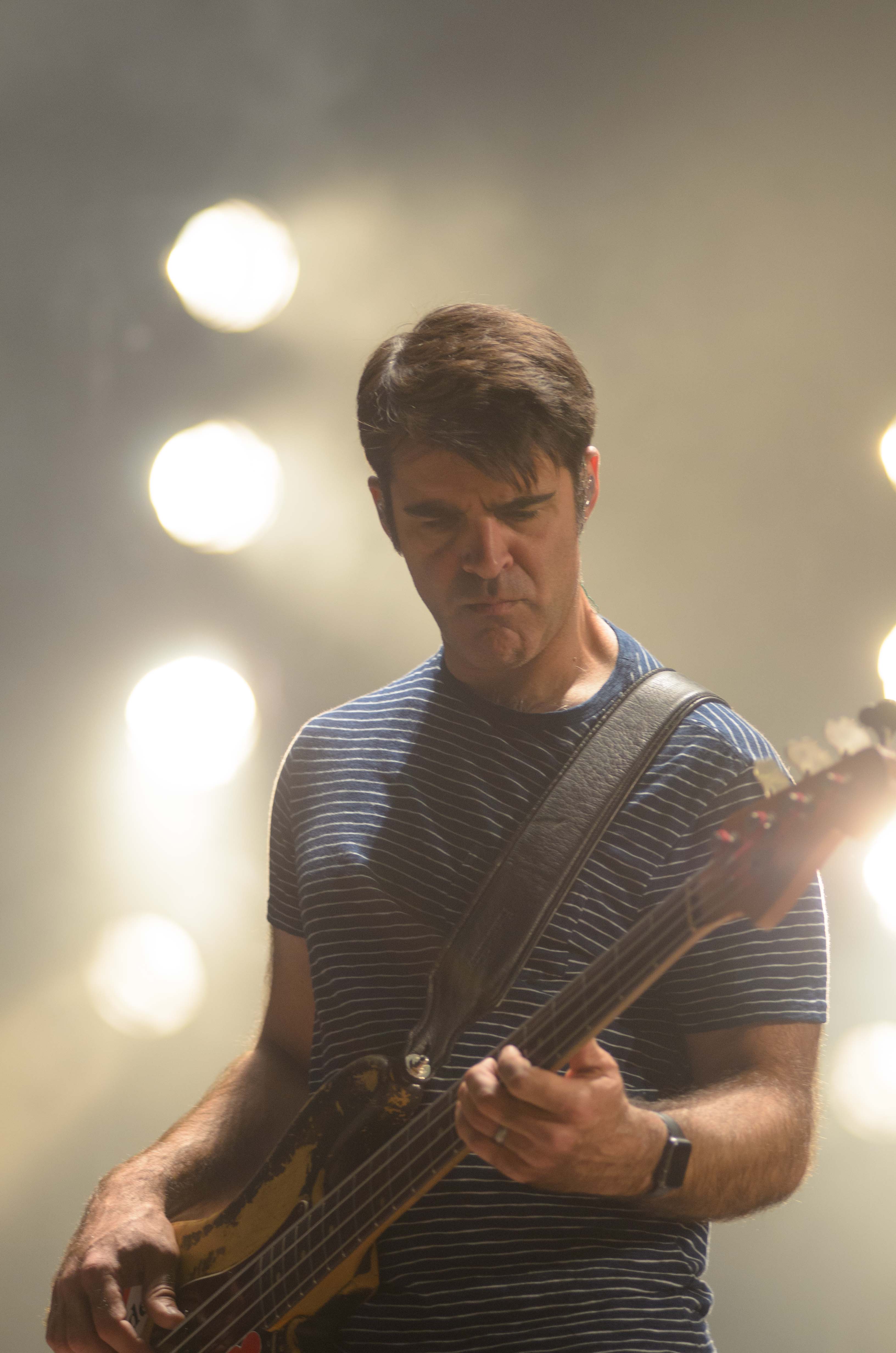
After a few years of barnstorming, and adding Kwon to the mix, the quartet signed with Rubin’s American Recordings imprint and released their smash I and Love and You. While the Avetts have always had a melodic heart and sincere soul, Rubin cleaned up their sound on the bouncy “Kick Drum Heart” and the swaying, piano-laden “Head Full of Doubt/Road Full of Promise,” and, without drastically altering their formula, focused on hooks that are equally appealing to veteran festival-goers and earnest suburban teenagers attending their first concert. To their credit, the band continued trucking on as they always had, jumping from major-market dates to rural, outdoor festival performances and more intimate theater engagements, often within the same week.
“In a very real sense, you’re going back to the first page of your journal every time you play one of those early songs,” Seth says. “If you can stomach sharing that, then there’s some value in it—possibly not for your own enjoyment, but there’s still value in it.”
The Avett Brothers are unquestionably one of the biggest touring acts in the country. While they’ve long since graduated to arenas for big holiday shows and homecoming engagements in North and South Carolina, in recent years, the Avetts have broken through to hockey rinks and amphitheaters in select markets throughout the Northeast, West Coast and Mountain States. Perennial festival favorites, The Avett Brothers are almost always billed within the top few rows on lineup announcements and, in February, they’ll even launch their own destination event in Mexico. There’s a fan-run Avett Brothers Wiki, the group has lent their music to This Is 40, Parenthood and Gap ads and, when Seth married actress Jennifer Carpenter over Memorial Day weekend, People reported on their nuptials. In a rare move for a band that has worked their way up from a Bonnaroo café tent to the main What Stage, their rollout for True Sadness included spots on The Tonight Show, Today and CBS This Morning in the same week. They are also at the center of the Southern revival dominating the current cultural landscape—a movement whose growth seems to echo a larger want for comfort, history and artistry in art, food and music during an era of instant access and eclecticism.
Yet, at the heart of their growth, The Avett Brothers remain a true family band, formed by siblings who, unlike the Robinsons and the Gallaghers, seem content to share the spotlight. Last year, Seth released a loving collection of Elliott Smith covers with Jessica Lea Mayfield. And instead of getting jealous about any critical acclaim his younger brother might have received, Scott praised the album for increasing Seth’s confidence and reinforcing his sense of melody and production prowess.
“You know when two people are trying to get to the front of a line?” Scott asks rhetorically. “We’ve become the guys who put their hand out and say, ‘Please, go ahead.’ We know that our strength is in the patience we have with each other and the allowances that we can give to each other. Somebody once posted something online to the effect of, ‘Scott should be thankful that his brother is Seth Avett.’ When you’re younger, you think, ‘That’s messed up.’ But brothers who love each other say, ‘That’s terrific.’ Seth and I know we both really need each other.”



















